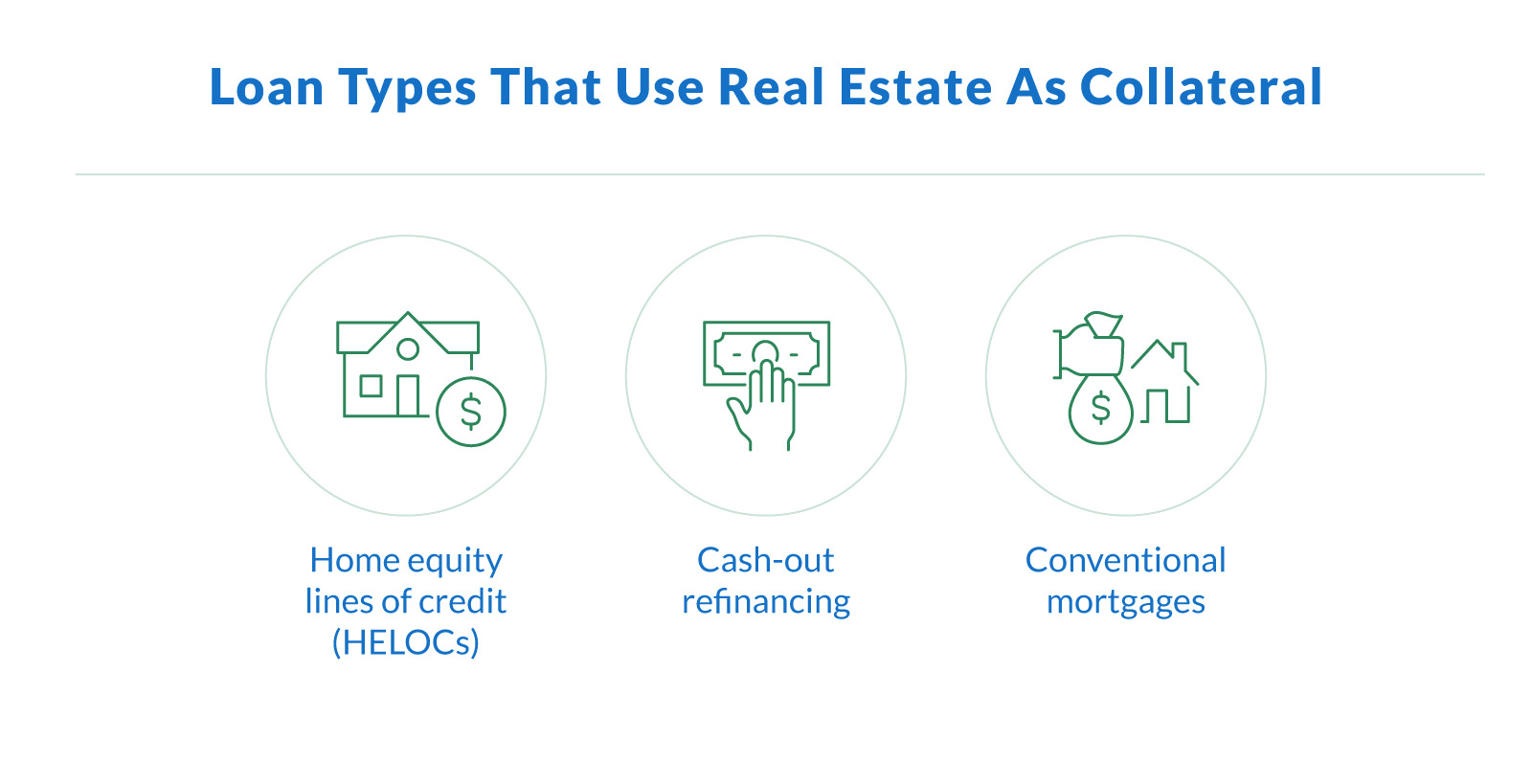If you own a home or investment property, you may be able to use it to get a mortgage loan or other financing options. This means a lender will let you borrow money using your property as collateral. Because the loan is backed by real estate, you can often qualify for a larger loan amount and lower interest rates compared to unsecured loans.
The biggest risk is that if you can't make the payments, the lender can foreclose on the property, meaning you could lose it. That's why it's important to weigh the benefits against the risks before using your home or other real estate to secure a loan. This guide explains how homeowners and real estate investors can use existing properties to secure loans, outlining the benefits, risks, and key factors lenders consider.
How To Use Existing Property To Get a Loan
Lenders allow homeowners and real estate investors to use their property's market value or appraised value to secure financing. This means a mortgage lender or other financial institution evaluates the property and determines how much can be borrowed based on factors like creditworthiness and loan approval criteria.
One key factor is the loan-to-value (LTV) ratio, which compares the loan amount to the property's market value. A lower LTV ratio means less risk for the lender and better loan terms for the borrower. Underwriting also plays a role, as lenders review financial documents, credit history, and property type to assess eligibility. Properties used as collateral can include primary residences, second homes, or investment properties.
Types of Loans That Use Real Estate as Collateral

Several loan programs allow borrowers to use their existing property as collateral:
Home equity loans. Borrowers receive a lump sum based on their home's property value.
Home equity lines of credit (HELOCs). This allows flexible withdrawals up to a set loan amount, similar to a credit card.
Cash-out refinancing. This lets you replace an existing mortgage with a new, larger loan to access cash.
Conventional mortgages. Some conventional loans require property-backed guarantees for higher approval odds.
Eligibility Requirements for Property-Backed Loans
Lenders consider several factors when approving a loan. To qualify, borrowers typically need:
Credit score. A strong credit history improves your chances of approval.
Debt-to-income ratio (DTI). Lenders assess a borrower's ability to handle additional debt.
Property type. Whether it's a primary residence, second home, or investment property impacts loan terms.
Occupancy requirements. Some loans require borrowers to live in the home.
Tax returns and income verification. Lenders may require proof of employment or rental income.
Pros and Cons of Property-Backed Loans
Using real estate to secure a loan can be a smart financing option, but it's important to understand both the benefits and potential risks. While these loans often come with lower interest rates and larger loan amounts, borrowers also face the possibility of foreclosure if they can't keep up with payments. Here's what to consider before using your property as collateral.
Benefits of Using an Existing Property to Secure a Loan
Leveraging real estate for financing offers several advantages:
Access to larger loan amounts. Equity-backed loans offer higher limits than unsecured loans.
Lower interest rates. Secured loans typically have better rates than personal loans or credit cards.
Flexible repayment options. Borrowers can choose different installments and terms based on their financial situation.
Risks and Drawbacks To Consider
While property-backed loans can be beneficial, there are some risks to keep in mind:
Risk of foreclosure. Defaulting could result in the loss of the property.
Closing costs and fees. Upfront expenses like down payment, origination, and legal fees can add up.
Impact on cash flow. Higher mortgage payments can strain finances and limit other investment opportunities.
Higher interest rates for some loans. Borrowers with poor credit may face higher interest rates than those with stronger credit profiles.
Before using your home or investment property to secure a loan, weigh the advantages against the potential risks to determine if this financing option aligns with your financial goals.
Alternatives to Using Property as Collateral
For borrowers who don't want to use their homeownership to secure financing, there are other loan options available. These alternatives provide access to funding without putting real estate at risk.
Personal loans. Unsecured financing with fixed repayment terms makes it a flexible option for various expenses.
FHA loans. Government-backed mortgage loans with lower down payments are ideal for first-time homebuyers.
Refinance options. Modifying an existing mortgage loan to secure better terms, such as a lower interest rate or reduced monthly payments.
Lines of credit. Borrowing against available credit without using real estate as collateral, offering a revolving source of funds.
Business loans. Small business owners can explore working capital loans, term loans, or merchant cash advances to meet their funding needs without leveraging personal property.
Should You Use Your Property To Secure a Loan?
Using an existing property as collateral can help borrowers qualify for larger loan amounts and lower interest rates, but it also comes with risks, including potential foreclosure. Before moving forward, compare loan options, assess your financial health, and consider long-term repayment obligations.
If you're ready to apply for financing, start your loan application with Clarify Capital today and get funded in as little as 24 hours!

Michael Baynes
Co-founder, Clarify
Michael has over 15 years of experience in the business finance industry working directly with entrepreneurs. He co-founded Clarify Capital with the mission to cut through the noise in the finance industry by providing fast funding and clear answers. He holds dual degrees in Accounting and Finance from the Kelley School of Business at Indiana University. More about the Clarify team →
Related Posts





